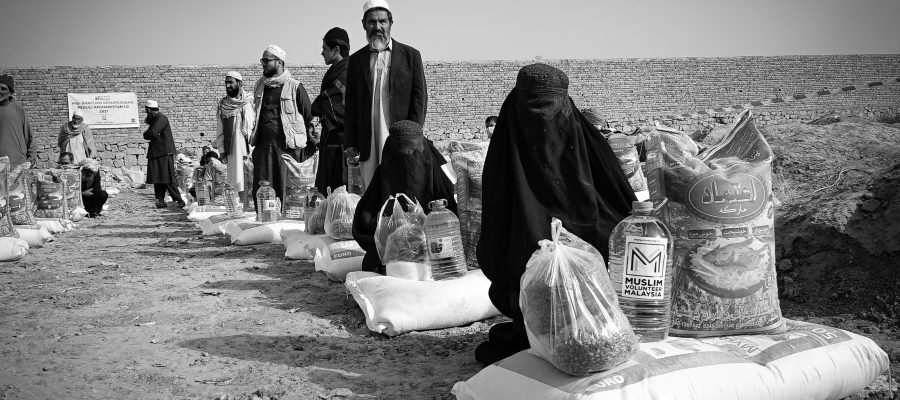Mujibullah Parwani, worked almost six years in Afghanistan for the EU mission – EUPOL (European Union Police Mission in Afghanistan). He was the staff coordinator and active in the political relations between the German Consulate General and local representatives in northern Afghanistan. As a political consultant and translator, he had contact with local politicians and the press. Today he lives with his family in Chemnitz and wants to give the people in Germany a realistic picture of the state of Afghanistan.
His work was characterized by diplomacy: “In my opinion, the mission was a success because we had also set up long-term projects. In cooperation with other aid organizations, we have been able to meet the needs of the population in different parts of northern Afghanistan by providing infrastructure; school projects; access to drinking water and other facilities for the local supply.” In the consulate itself and in meetings in the communities, he received a lot of positive feedback for this work. This was only possible because of the trust of the local people. A trust that should not be betrayed by forgetting people.
The last days before the collapse
Between 1996 and 2001, during the first Taliban dictatorship, Mr. Parwani experienced a dark chapter in the history of Afghanistan. There were public executions, the rights of women and girls were trampled on, and the population lived in fear. It seemed inconceivable to him that this would all happen again. “While the Taliban have become more successful in the smaller rural provinces over the years, we didn’t expect them to be able to take over the big cities like Herat or Kabul. When they finally took power over the entire country, I knew that I had to go straight to Kabul with my family. Because of my professional background, there was no other option than leaving the country by plane. I would have been a target because my face was in the Afghan media too often,” explains Parwani, who actually managed to be evacuated in one of the last Bundeswehr aircraft.

But the journey there was torture for him and his family. On the one hand, his political work endangered him, on the other hand, thousands of other desperate people were already thronging Kabul airport and blocking access: “Only with the help of the German embassy and its employees were we able to pass through all the checkpoints with a bus and take us to the airport premises will. Since many employees of the German embassy in Kabul were also traveling with us, the risk for everyone on board was extremely high. It was a horrible journey that lasted almost 24 hours. Everyone on the bus, especially the children, was terrified. Taliban fighters were constantly shooting into the air to drive people away.”
Restart in Chemnitz
Mr. Parwani now has a residence permit and lives in Chemnitz. His children go to school and study every day. It is still difficult for him to really settle into Saxony during the pandemic, as most language courses have been canceled in recent months. It is particularly difficult for him to witness the catastrophe from afar. “I can’t help directly on site, I have to deal with a lot and at the same time I’m just beginning to build a new life for myself. But I’m trying and I want to give the people in Germany a real picture of the situation in Afghanistan.” He describes that, in addition to the great famine, the suppression of the media by the Taliban means that not all information is leaked out: “Afghanistan must not be forgotten, the humanitarian need is increasing. In my role in exile, I will try to educate and mediate as the voice of Afghanistan.”
Thousands of locals are still waiting there to be evacuated as the situation in the country becomes more and more dramatic. More than half of the population is at risk of starvation. Protests and the work of the free media are forbidden. Many fears about how Afghanistan would develop under the Taliban have been confirmed. The UN recently reported the execution of over 100 people who had previously worked as local or Afghan government security forces.
#AfghanLivesMatter still applies
The fate of the people in Afghanistan must not be forgotten; the German side also has a responsibility for this. On the one hand, it is important to carry out the necessary evacuations as quickly as possible, there is even a legal obligation to do so. On the other hand, those seeking protection who are already living in Germany must be given long-term prospects of residence. In addition, it would be necessary for Saxony’s state government to become a state adopted an admissions program to enable family members of those who have already been evacuated to leave the country.
According to Parwani, the prospects in the country are bleak: “Everything the Taliban try to sell as internal progress is a show. The Taliban’s radical mindset will not change. In the beginning, they wanted to gain the trust and recognition of the international community in order to receive financial support. Now we see that they put mullahs in high political positions who are absolutely incapable of running the country.”



